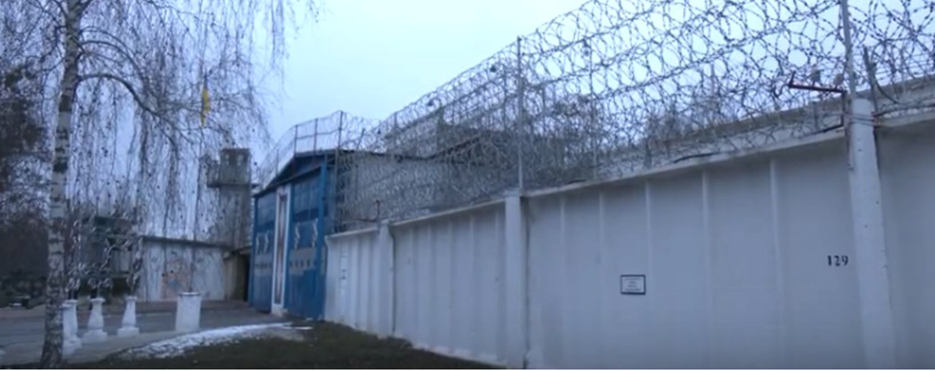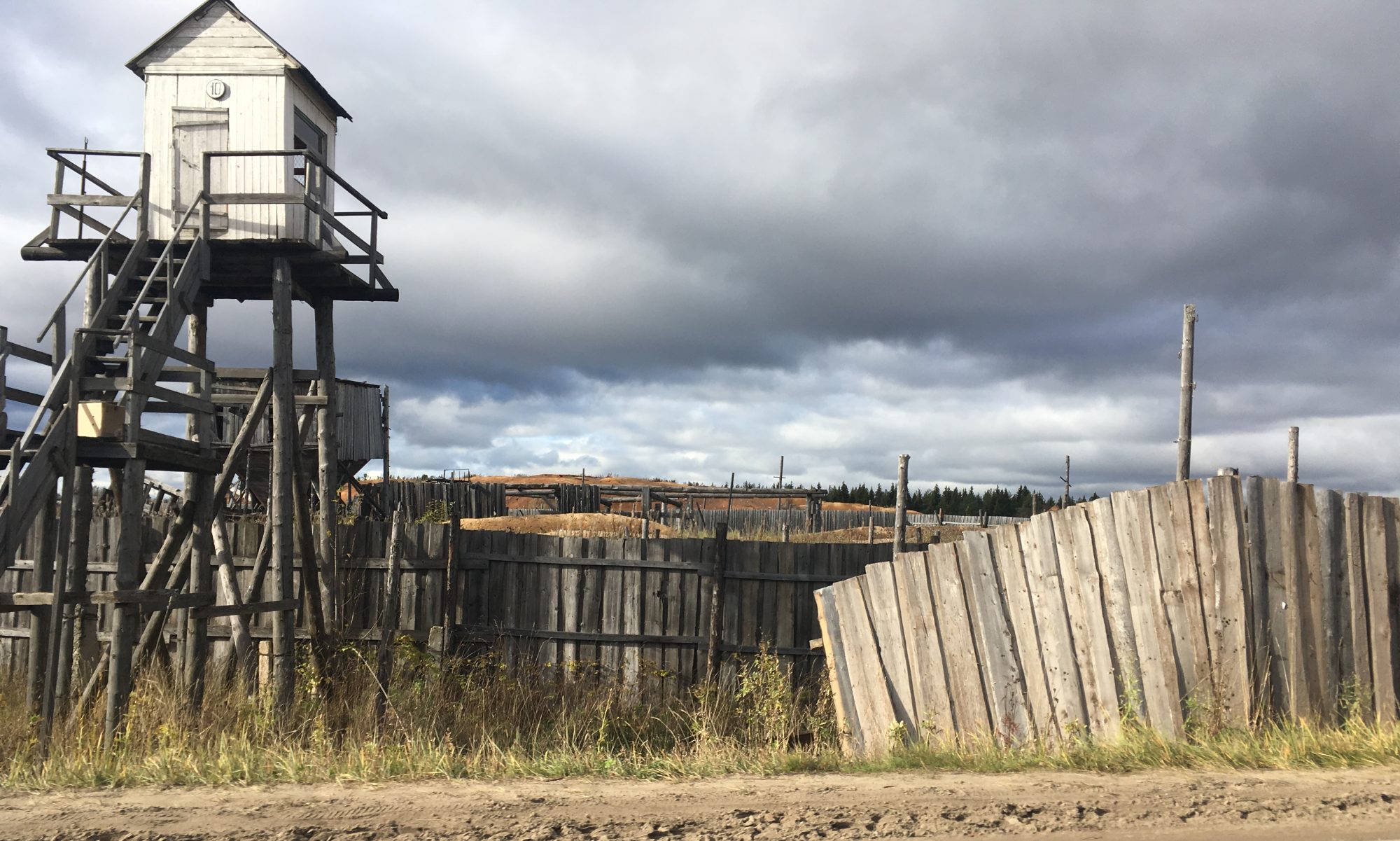BY DR. MYKHAILO ROMANOV

In the first of two blog posts, Myhkailo Romanov, visiting fellow from Kharkiv, describes the impact of Russian’s war on the penitentiary system of Ukraine. In this post he focuses on the impact of the war has had on the penitentiary institutions on the country, including those that were stranded, together with their prisoners, by the rapid advance of the Russian army into eastern Ukraine but were subsequently liberated in September 2022. He describes what human rights defenders from the Kharkiv Human Rights Protection Group (KHPG) found in the liberated prisons.
Russia’s war against Ukraine has a profound impact on all spheres of life in Ukrainian society. It has a particularly acute effect on the economic and social sphere. And although patriotic and uniting sentiments are observed in Ukrainian society, the protracted nature of the war cannot but affect the quality of life and the functioning of individual social institutions.
This fully applies to the penitentiary system of Ukraine. It has never been perfect, and there have always been big problems in the execution of sentences, among which the violation of human rights occupied one of the leading places. The general punitive orientation of this activity has formed a whole prison world based on suppression, intimidation, humiliation and destruction of the personality of the convict. Of course, it is quite difficult to change such a system that has been created for decades.
The penitentiary system of Ukraine has received a tangible positive momentum in recent years, making it more open and ready to accept changes. And although such changes took place in an atmosphere of rather strong opposition from the staff of the penitentiary department, nevertheless, some shifts became apparent. An example is the significant reduction in the size of the prison population.
The war unleashed by Russia brought to a halt the progress of reforms in the penitentiary system and exacerbated its already numerous problems.
First of all, the funding of the prison department and individual institutions for the execution of sentences has decreased. Of course, during the war, the lion’s share of finances is absorbed by military needs, and the activities of the penal system are relegated to the background. This has led to significant humanitarian needs in the colonies. We are talking about the basic needs of convicted offenders: food, clothes and basic necessities.
The need to address humanitarian issues has arisen not only because of financial constraints, but also because of severing of the Prison Service’s normal supply chains to prisons. The rapidly developing events in the theatre of operations also meant that some facilities did not have time to be evacuated. The correctional colonies located in the occupied territories were especially effected as they were cut off from established supply and support routes, which led to interruptions in the provision of food sanitary and other items. Prisoners in some institutions experienced starvation or malnutrition, and also faced problems in providing vital needs for heating, lighting in the places of deprivation of liberty. These problems were associated with damage to the communal infrastructure.
As for the functioning of the system itself, on top of the publicised violations of prisoners’ rights, such as cruelty, beatings and torture, the failure to provide medical assistance and so on in the occupied territories, military operations caused a number of new problems in the relationship between staff and prisoners alike. The population of the colonies and the staff were divided into those who were patriotic towards Ukraine and those who inclined towards the occupying authorities. Among the staff of the colonies, cases of collaboration have been reported. Prison personnel were able to identify which of the prisoners sympathized with Ukraine, who were prepared to use all means to defend it, and who had previously taken part in hostilities against Russian troops This patriotism led to them becoming victims of torture and beatings.
A new problem that arose was that some of the convicted offenders stranded in the colonies in the occupied territories were deported to Russia. Difficulties also arose with the length and terms of the ‘captured’ prisoners’ sentences. Some prisoners had their sentences reviewed under the legislation of the Russian Federation or its hybrid formations (LNR, DPR), which led to the extension of their sentences. Similar difficulties arose for those who were held in custody pending a court decision. Often, their terms were also extended.
As for the general state of affairs in the penitentiary system in Ukraine in general, as mentioned above, its functioning and the management of prisoners deteriorated during the war. This concerned both the physical conditions of detention and treatment that actively violated the rights of convicts. Monitors of a human rights organization, such as the Kharkiv Human Rights Protection Group, during visits to the colonies, uncovered cases of gross violations of human rights, which in some cases, had even led to the death of convicts. In particular, episodes were revealed when convicts were denied medical care, which in one case of a cancer sufferer leading to his death. There have also been verifiable instances of individual and mass beatings with truncheons in specific correctional colonies leading to serious cases of bodily harm.
All these circumstances, unfortunately, indicate that the penitentiary system of Ukraine has a significant negative inertia and the processes of reform and its transformation to date are not actually taking place.
In this second Blog Mykhailo reports about a specific penitentiary that the KHPG monitored after it was liberated and gives a link to videos, showing disturbing evidence of cruelty. These are evidence that a ‘torture conveyor’ like those in the Russian prison system, exist also in Ukraine.
Monitoring visits carried out by KHPG have always been a very effective means of monitoring the conditions in Ukraine’s penitentiary institutions. During the war, monitoring by independent civil society organisations has continued and developed its practices further. Since 24th February 2022, monitoring visits have proved particularly necessary. After all, the problems in the correctional colonies, which I write about in my first blog, give rise to gross violations of the rights of convicts.
Our short video report about one of the institutions – Sofiyivska Correctional Colony No. 45. The institution has a multidisciplinary hospital and generally intended for the detention of sick convicts with 1 or 2 disability groups. However, the visit showed that the institution not only contained disabled prisoners for whom it was intended, but also able-bodied prisoners transferred from other institutions.
We found that terrible things were happening in this colony, as the videos show:
